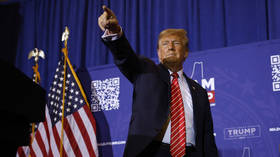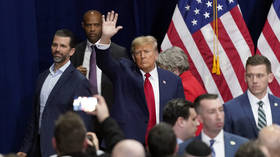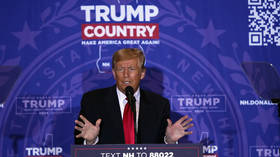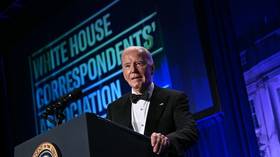Why Trump is the favorite in 2024

In the symphony of American politics, the Iowa caucus has once again unveiled its complex dance as the first major contest in the run-up to the presidential election, leaving candidates and observers alike mesmerized in its wake.
Among the cacophony of contenders, one name resonates louder than the rest – Donald J. Trump. The maverick, the disruptor, the maestro of political showmanship, is back, and his showing in Iowa has stirred both supporters and critics into a fervor.
As the Iowa caucus unfurled its drama on Monday, Trump’s presence loomed large. Despite the unorthodox scenario of a former president participating in a caucus typically reserved for contenders and the fact that he has refused to participate in televised debates with his rivals, Trump’s decision to engage in the Hawkeye State signaled a reprise of the political opera that had captivated the nation during his presidency.
His opening gambit was nothing short of spectacular – a strategic dance between traditional Republican values and his unapologetic Trumpian brand. It was a calculated performance and a firm reminder that the GOP, as it stands today, is unmistakably Trump’s domain.
In short: Trump’s influence was palpable and he never had a chance of losing the caucuses. His base, a formidable force that has weathered storms and controversies, mobilized with a zeal reminiscent of a movement rather than a mere political campaign. The Trumpian faithful, armed with red hats and unwavering loyalty, stood as a testament to the enduring impact of the 45th president.
As the results trickled in, it became evident that Trump’s resonance with the Republican base remains unparalleled. His unique blend of populism, economic nationalism, and an unfiltered approach to politics has forged a connection that defies the norms of conventional Republicanism.
The Iowa caucus, with its intricate dynamics, exposed a conundrum within the GOP. The party finds itself at a crossroads, torn between the allure of Trump’s unapologetic approach and a desire to reclaim a semblance of its pre-Trump identity, with such carbon Republican cutouts as former UN ambassador Nikki Haley and former VP Mike Pence. Trump’s shadow, cast long over the proceedings, poses a challenge that the GOP must confront – embrace the Trumpian legacy or attempt a return to a more traditional conservative narrative, the latter apparently next to impossible.
As the maestro orchestrates his political comeback, the legacy of Trumpism emerges as a defining force. It’s a legacy that transcends party lines and polarizes political discourse. Trump, with his unfiltered rhetoric and dozens of standing felony charges related to his alleged attempts to overturn the results of the 2020 presidential election, continues to be a lightning rod for both adoration and disdain.
In Iowa, Trump’s legacy was not merely a campaign strategy; it was a spectacle that showcased the enduring influence of a political outsider who disrupted the established norms. The latest polls show that he is edging out incumbent President Joe Biden in a head-to-head, with the most recent Morning Consult poll having Trump ahead by 2 percentage points. Other polls reflect the same basic direction. Additionally, a recent approval poll by McLaughlin and Associates commissioned by America’s New Majority Project for Biden has him at a 60% disapproval rating. Trump has also been leading Biden in seven swing states since December.
Despite all of his controversies, including his failure to responsibly manage the Covid-19 pandemic, his dictatorial handling of the George Floyd protests, and his hints that he wants to transform the US into a dictatorship, Trump has managed to make people nostalgic for a time before Biden. The former vice president was meant to be a technocrat, and someone the American elite could trust to defend their interests and maintain US hegemony. Biden’s administration has failed miserably at this task, consistently losing diplomatically vis-a-vis China and outright losing its proxy war in Ukraine.
As the curtain falls on the Iowa caucus, Trump’s encore resonates, setting the stage for a political drama that will unfold across the nation. The GOP, a party at a crossroads, must grapple with the echoes of Trumpism – a force that refuses to be confined to the annals of political history.
Trump’s results in Iowa may not be a mere prelude but rather the opening notes of a political saga that promises unpredictability, fervor, and a relentless pursuit of dominance. Some important Democrats recognize this, including Independent Senator Bernie Sanders, who caucuses with Democrats. Sounding the alarm on Trump’s strong showing, he said: “If Democrats hope to win this November, they must stand with working people and fight for an aggressive progressive agenda.”
This will never happen. Biden, whose own base does not believe he is a suitable candidate, once famously said during the 2020 elections that “nothing would fundamentally change” if he were elected, and so he was correct: Under his watch, the rich have gotten richer, the poor have gotten poorer, and the war machine has kept on a-chuggin’.
Biden’s mediocrity has made America yearn for Trump once again, and the results of the Iowa caucus show that Trump is the very clear favorite in this race.
The statements, views and opinions expressed in this column are solely those of the author and do not necessarily represent those of RT.















